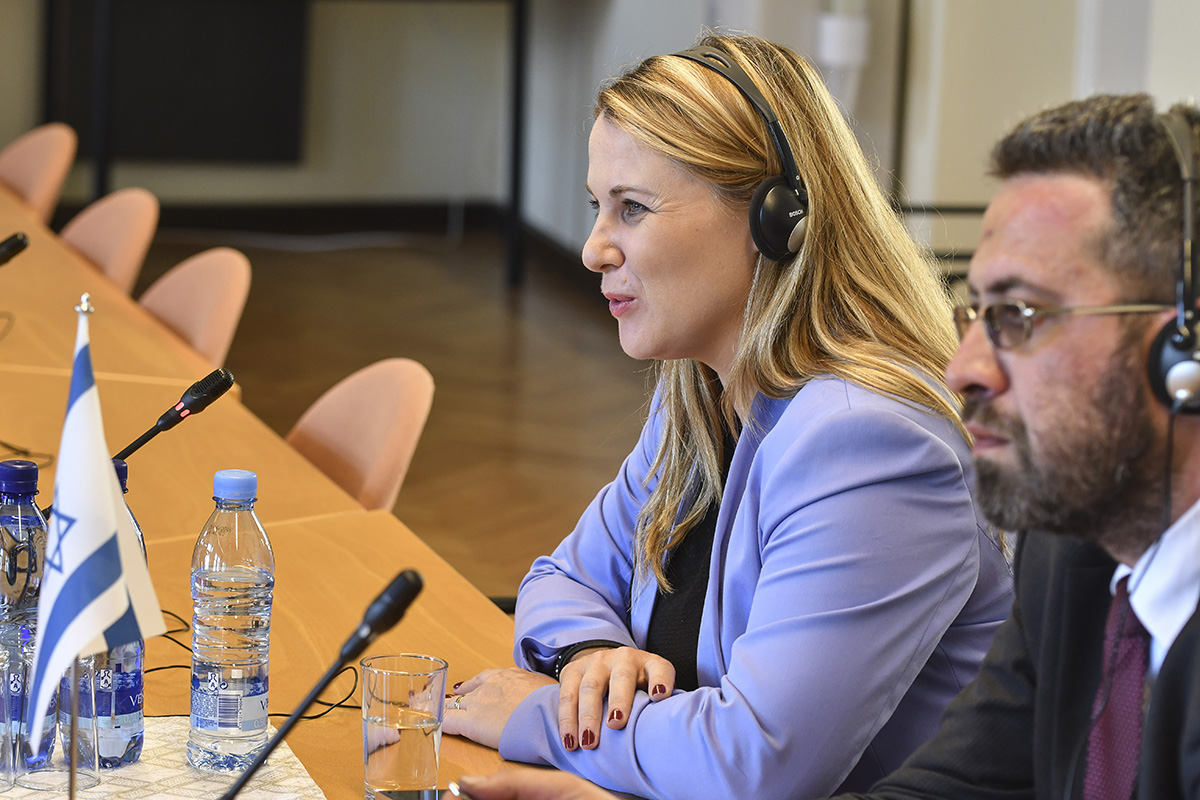Kurdish land shouldn’t be treated as enemy territory, Knesset bill proposes
As MKs line up to declare support for Kurdistan, one lawmaker seeks to facilitate contact between Kurds and Israelis.
A bill introduced in the Knesset and set to be brought to a vote in the coming weeks would see all areas controlled by Kurdish people in the Middle East excluded from the laws prohibiting Israelis from traveling and doing business in enemy states.
MK (Zionist Union) Ksenia Svetlova announced her bill on Wednesday during a rare Knesset conference about relations between Israel and the Kurdish people.
The purpose of the bill, she said, was to ease access to Kurdish-controlled territory for “Israelis who want to be there for academic or commercial purposes, or visiting graves of their loved ones.”
Tens of thousands of Jewish families were forced to immigrate to Israel from Iraq soon after the birth of the State of Israel in 1948. Today, there are almost 200,000 Kurdish Jews in Israel, about half of whom reside in Jerusalem.
The bill, a copy of which was given to The Times of Israel, makes no explicit distinction between Kurdish-controlled areas in Iraq — known as the Kurdish Regional Government (KRG), where Israelis can travel fairly safely — and other Kurdish areas, whether in northern Syria or in Iran.
The vagueness is intentional, the bill’s author told The Times of Israel. The legislation is currently meant to refer just to Iraqi Kurdistan, though that could change in the future.
Svetlova, who serves as the head of the Knesset pro-Kurdish caucus, gave a cautious estimate of its chances of being signed into law.
“I’m not saying one hundred percent it will not pass,” she said, adding that she knew many government ministers are “sympathetic” to her initiative.
“But even if it will not pass this time, it will help us put on the table a very important definition: What is Iraqi Kurdistan? Can we continue to treat it just like [the rest] of Iraq?” she said.
Svetlova added: “It’s important for Israeli citizens who are interested in pursuing ties with the Kurds to know that when they come back from Kurdistan they won’t be persecuted by a variety of security agencies, and this is unfortunately what happens now.”
Source: The Times of Israel

